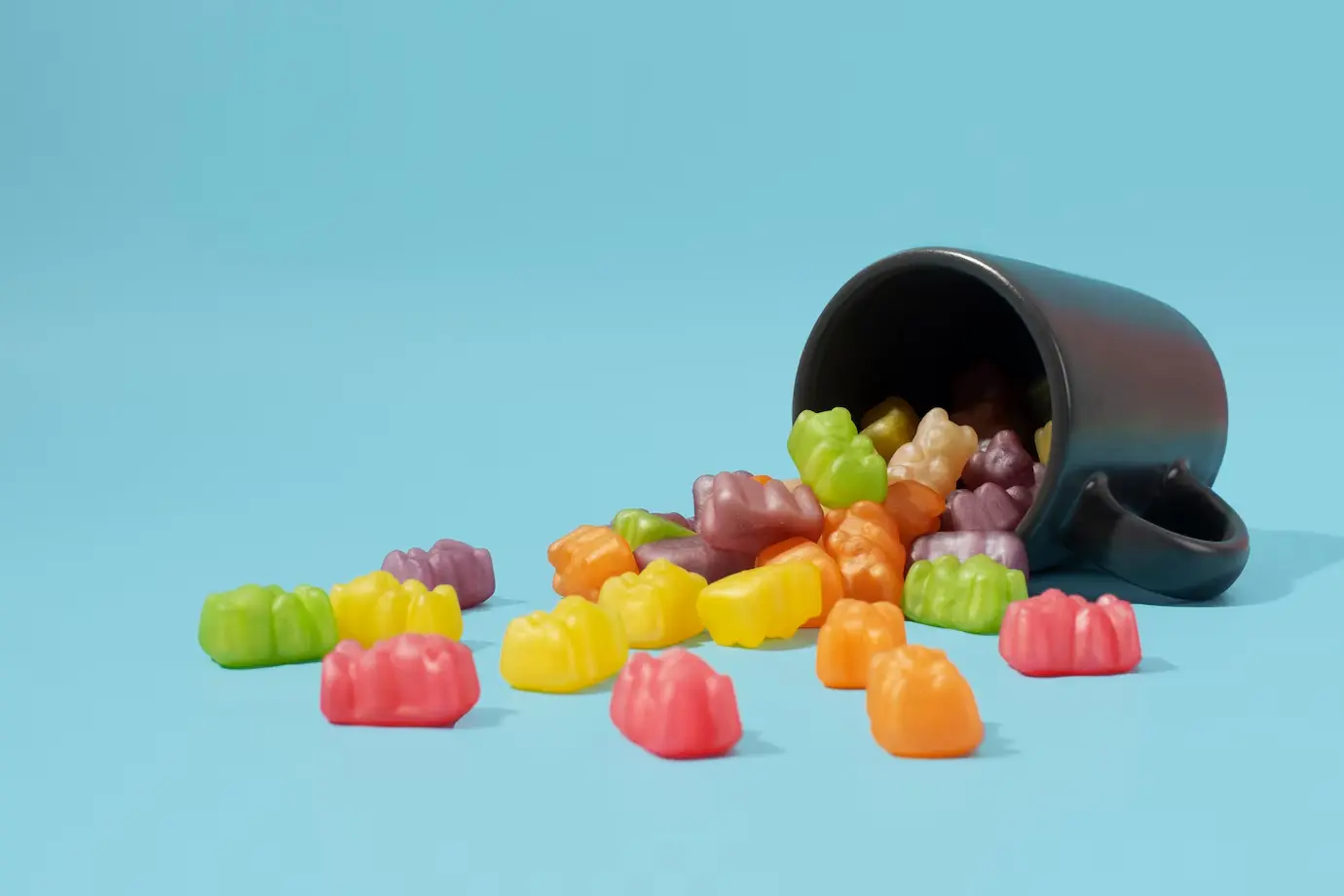No, cats should not eat gummy bears or any other candy. Gummy bears contain sugar, gelatin, glucose syrup, flavoring, food coloring, and citric acid. These can cause dental issues, obesity, diabetes, digestive upset, allergic reactions, and xylitol poisoning in cats. Consuming gummy bears is unhealthy and unsafe for cats.
What are Gummy Bears?
Gummy bears are fruit-flavored, bear-shaped candies. They were invented in Germany in 1922 by Hans Riegel Sr., founder of Haribo. Originally called Dancing Bears and much larger, the name “gummy” refers to the gum Arabic used as an early ingredient. Gummy bears are popular among children and adults.
Are Gummy Bears Safe for Cats?
No, gummy bears are not safe for cats. As obligate carnivores, cats lack the ability to properly digest or benefit from gummy bears’ ingredients. The unnecessary sugar, gelatin, and other contents pose health risks including dental issues, obesity, diabetes, digestive upset, allergic reactions, and xylitol poisoning.
Are the artificial sweeteners used in gummy bears safe for cats to consume?
No, artificial sweeteners in gummy bears are also unsafe for cats. Xylitol is highly toxic, causing liver failure and death. Sorbitol can worsen digestive issues. Aspartame may negatively impact nerves, brain function, and cancer risk. Artificial sweeteners pose serious health dangers to cats.
Are sugar-free gummy bears a safer option for cats compared to regular gummy bears?
Sugar-free gummy bears are not safer for cats. They contain artificial sweeteners toxic to cats like xylitol, as well as gelatin, glucose, flavorings, colors, and acids. These pose health risks without nutritional value. Sugar-free gummy bears are equally dangerous options for cats.
Do gummy bears provide any nutritional value that would benefit cats?
No, Gummy bears lack nutritional value for cats. Cats require meat proteins, fats, vitamins, and minerals. Gummy bears do not contain these essentials. Instead, gummy bears provide empty calories that risk obesity and diabetes in cats. They offer no dietary benefits.
Can cats become addicted to the taste of gummy bears if allowed to eat them?
Yes, some cats can become addicted to the artificial sweetness of gummy bears. Their natural preference for high-energy sweet foods leads them to crave the mimicked sweet flavors. Some cats may beg and persistently want gummy bears, despite the lack of nutritional value and health risks. The artificial additives exploit cats’ sweet taste preferences, resulting in potentially addictive behaviors.
What symptoms might indicate a cat has eaten too many gummy bears?
Gummy bear overdose symptoms in cats include:
- Bad breath: Cats may get tooth decay and gum disease from sugar and artificial sweeteners.
- Weight gain: Sugar and artificial sweeteners may make cats fat and diabetic.
- Nausea, vomiting, diarrhea, and gas: Cats might have digestive upset and inflammation from gelatin, glucose syrup, and citric acid.
- Itching, swelling, hives, and trouble breathing: Flavoring and food coloring may induce allergic reactions including anaphylaxis in cats.
- Lethargy, weakness, seizures, and coma: Xylitol may induce lethargy, weakness, convulsions, coma, low blood sugar, liver failure, and death in cats.
After eating gummy bears or other sweets, your cat may exhibit these symptoms. Call your vet immediately.
Conclusion
Gummy bears are not suitable for cats to eat. They contain ingredients that are harmful or unnecessary for cats, such as sugar, gelatin, glucose syrup, flavoring, food coloring, citric acid, and artificial sweeteners. These ingredients can cause various health problems for cats, such as dental issues, obesity, diabetes, digestive upset, allergic reactions, and xylitol poisoning. Gummy bears have no nutritional value for cats and only pose health risks. Therefore, you should never feed gummy bears or any other candy to your cat. Instead, you should provide your cat with a balanced diet of high-quality cat food that meets their nutritional needs. You should also limit the amount of treats you give your cat and choose ones that are healthy and safe for them.


